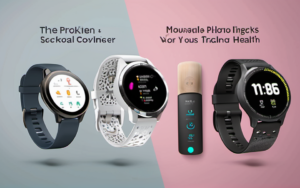The convenience and connectivity offered by smart gadgets are undeniable, but they also raise legitimate privacy concerns. From our smartphones to our homes, these devices are collecting vast amounts of personal data, leaving many questioning the implications for their privacy. Let’s explore the rise of smart gadgets, delve into the associated privacy concerns, and examine how we can balance convenience with privacy in this increasingly interconnected world.
The Rise of Smart Gadgets
Our lives have become increasingly intertwined with technology, and smart gadgets have become ubiquitous.
Smartphones and Wearables
Smartphones, with their myriad apps and sensors, have become extensions of ourselves, tracking our location, browsing history, and even our physical activity. Wearable devices like smartwatches and fitness trackers further enhance this data collection, monitoring our heart rate, sleep patterns, and even our emotional state.
Smart Homes and Connected Devices
The concept of the smart home, with its interconnected devices, takes convenience to a whole new level. Smart refrigerators, thermostats, and security systems are all designed to make our lives easier, but they also create new avenues for data collection and potential privacy breaches.
Privacy Concerns with Smart Gadgets
While smart gadgets offer undeniable benefits, they also raise serious privacy concerns that we need to be aware of.
Data Collection and Tracking
The most significant concern surrounding smart gadgets is the vast amount of data they collect and track.
Location Tracking
Smartphones, wearables, and even smart home devices use GPS and other location-based technologies to track our movements. This data can be used to create detailed profiles of our daily routines, habits, and even personal relationships.
Personal Data Collection
Beyond location tracking, smart gadgets collect a wealth of personal data, including our contacts, browsing history, search queries, and even our voice recordings. This data can be used for targeted advertising, personalized services, and even for more intrusive purposes.
Security Risks
The interconnected nature of smart gadgets also makes them vulnerable to security risks.
Hacking and Data Breaches
Smart gadgets are connected to the internet, making them susceptible to hacking and data breaches. Hackers can potentially gain access to personal data, including sensitive information like financial details and health records.
Surveillance and Monitoring
The ability of smart gadgets to collect and transmit data raises concerns about surveillance and monitoring. Governments and corporations could potentially access this data, raising questions about our right to privacy.
Balancing Convenience and Privacy
The key to navigating the world of smart gadgets is to understand the trade-offs between convenience and privacy. By taking proactive steps, we can minimize the risks to our privacy while still enjoying the benefits of these technologies.
Understanding Privacy Settings
Most smart gadgets come with privacy settings that allow us to control the data they collect and share. It’s crucial to take the time to understand these settings and adjust them to reflect our comfort levels.
Minimizing Data Sharing
We can also minimize data sharing by limiting the permissions granted to apps and devices. For example, we can choose to disable location tracking when not necessary, or limit the access of apps to our contacts and browsing history.
Using Privacy-Focused Gadgets
There are now privacy-focused smart gadgets and services available that prioritize user privacy. These devices may have limited data collection capabilities, use end-to-end encryption, or offer greater transparency about data usage.
The Future of Privacy in a Smart World
As smart gadgets continue to evolve, the need for strong privacy protections becomes increasingly important.
Regulation and Legislation
Governments and regulatory bodies are starting to address the privacy concerns associated with smart gadgets. New laws and regulations are being proposed to protect user data and limit the ability of companies to collect and use personal information without consent.
Technological Advancements
Technological advancements are also playing a role in addressing privacy concerns. For example, privacy-enhancing technologies like differential privacy and homomorphic encryption are being explored to allow data analysis without compromising individual privacy.
Consumer Awareness and Empowerment
Ultimately, the future of privacy in a smart world depends on consumer awareness and empowerment. By staying informed about privacy concerns, understanding our rights, and taking proactive steps to protect our data, we can ensure that the benefits of smart gadgets are realized without sacrificing our privacy.
The landscape of smart gadgets is constantly evolving, and so are the privacy concerns they raise. By being informed, taking control of our data, and advocating for stronger privacy protections, we can navigate this technological landscape while safeguarding our right to privacy.




